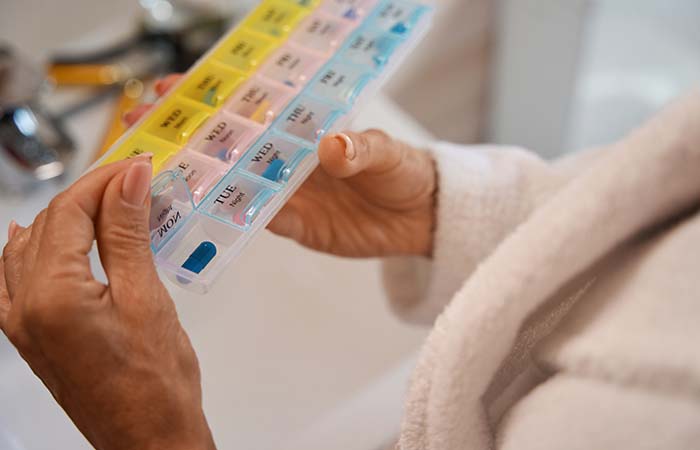Woman died after taking medicine from husband’s ‘identical’ dosette box
In News
Follow this topic
Bookmark
Record learning outcomes
A Berkshire woman with cognitive impairment died after taking medicines from her husband’s dosette box rather than her own “for several days,” a coroner has found.
A report by assistant coroner for Berkshire Katy Thorne found that Sewa Kaur Chaddha died on May 10 2023, five days after she was found collapsed at home in Slough.
Both she and her husbands were taking “multiple prescribed conditions” as well as “cognitive impairment due to their age” according to the report.
The coroner wrote: “It was discovered that she had been taking her husband’s medication instead of her own for several days, including diabetes medication. Her blood sugar levels were found to be extremely low.”
The cause of death was principally attributed to hyponatraemia “caused by the necessary treatment for hypoglycaemia which was in turn caused by the accidental ingestion of hypoglycaemic medication”.
In her report – which was written in July but made public yesterday (October 15) – the coroner said that both Mrs Chaddha and her husband received separate multi-compartment compliance aids (MCAs) from their local pharmacy, which was then a branch of LloydsPharmacy, adding: “The two patients’ dosette boxes were identical to each other except for a small pharmacist’s label with small type with the relevant patient’s name.”
The inquest found both that there was no “well disseminated” guidance for pharmacies around issuing medicines to patients with dementia and that “dosette boxes of different colours or labels with different colours were not routinely given to elderly or cognitively impaired patients living at the same address”.
The report was sent to a number of NHS and pharmacy bodies. In its response, NHS Frimley said it would update its local resource materials in the wake of the tragic case and commented : “When patients are assessed, they are generally presumed to have capacity unless there is clear evidence of a cognitive impairment.
“All healthcare professionals are expected to assess a patient’s capacity, which can include evaluating their ability to retain and recall information.
“In this case, there was no information indicating whether such an assessment had been concluded by any healthcare or social care professionals.
“We recognise that guidance documents alone are often insufficient. Lasting and effective change requires embedding these guidelines within contracts and regulations.
“We will therefore inform NHS England’s pharmacy team of this case and request that they consider potential changes to the Community Pharmacy Contractual Framework.”
NHS Frimley also noted that “typically a pharmacy will use one particular brand” of MCA, adding: “There are several different brands of dosette boxes available and typically a pharmacy will use one particular brand.
“There are only a limited number used within community pharmacy due to the requirement that dosettes used must enable fulfilment of the legal labelling requirements.
“These are not currently available in different colours or label colours.”
NHS division the Specialist Pharmacy Service told the coroner that although a “small number” of patients may be eligible for an MCA filled by a pharmacist, they “should not be used routinely”.
The SPS added: “The risks of using MCAs are widely documented and their benefit in relation to medication adherence is unknown. Unless there is clear, explicit rationale for the use of MCAs, the default should be to supply medicines in their original packaging.”
It said that the Royal Pharmaceutical Society’s guidance on using MCAs is the “most comprehensive” that is available but can only be accessed by members.
Community Pharmacy England said it would raise the case with the RPS and the Community Pharmacy Patient Safety Group and “ask each to consider additional guidance” in light of the case.
Meanwhile, the National Pharmacy Association told the coroner it would consider how to “refine” its guidance and “how we can continue to further raise awareness of this issue with our member pharmacies”.

